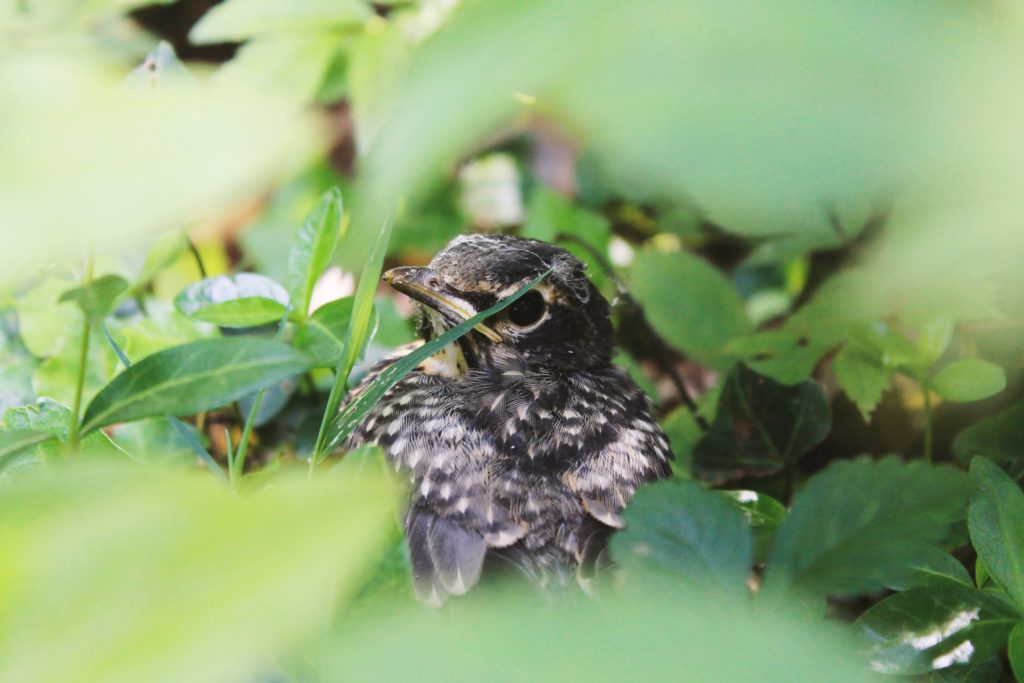Your springtime guide to baby wildlife
March 3, 2022
Posted by Lake Erie Nature and Science Center

As the weather warms and people spend more time outdoors, you may notice young animals that seem to be alone or in distress.
Lake Erie Nature & Science Center is the only wildlife rehabilitation facility in Cuyahoga County and offers free wildlife education and rehabilitation services seven days a week. Especially in spring, the Center receives several calls each day from concerned community members about birds, rabbits, squirrels, fawns and other wild babies.
“Sadly, well-meaning individuals sometimes assume wild babies are abandoned and, as a result, take them from their parents,” says wildlife rehabilitation specialist Tim Jasinski.
“We encourage the community to call us before intervening, as baby wildlife is rarely abandoned in nature.”
Here are the Center’s baby wildlife tips to keep in mind this season:
Eastern Cottontail Rabbits
Eastern cottontail rabbits often build their nests in yards and open spaces. If you find one, do not move the bunnies, because then their mother will be unable to find them. She will return at dusk and dawn to feed and groom her babies.
White-tailed Deer
A fawn lying quietly by itself is perfectly normal. Deer do this to protect their young, as the presence of an adult would attract the attention of predators.
If a fawn seems to be in a “dangerous” location, do not move it or the mother will have trouble finding her baby. But if a fawn is walking around and making noise, it may be in need of assistance.
Birds
A baby bird with skin still visible or only covered in downy feathers should be placed back in the nest or in an artificial nest.
If fully feathered but unable to fly, the bird is a fledging that should be left alone to learn critical survival behaviors. It is important to monitor your pets and keep cats indoors, especially during baby wildlife season. Your supervision will not only protect fledglings and other wildlife, but keep your pets safe, too.
You may be surprised to learn that most birds have little sense of smell. While mammals have a strong sense of smell, human scent is not nearly enough of a danger to cause mother birds to abandon their hormonal and maternal behaviors.
Raccoons and Squirrels
Raccoons and squirrels will frequently retrieve their babies when they end up out of the nest too early.
Opossums
Opossums are North America’s only marsupials, which means they keep their babies in a pouch. Young opossums will stay with their mom for about a month after they leave her pouch (around 4 months old). If you find an opossum alone before this age, it may be in need of human assistance.
It’s important to remember that baby wildlife will never receive the same quality of care from humans as they would receive from their parents. Each species requires a specialized diet, and feeding an animal the wrong food can be harmful to its health.
Human care should be seen as a last resort.
If you have questions about baby wildlife this spring, please contact the nonprofit Lake Erie Nature & Science Center at 440-871-2900, extension 204, or wildlife@lensc.org before intervening. The center’s address is 28728 Wolf Road, Bay Village, OH 44140. www.lensc.org.

